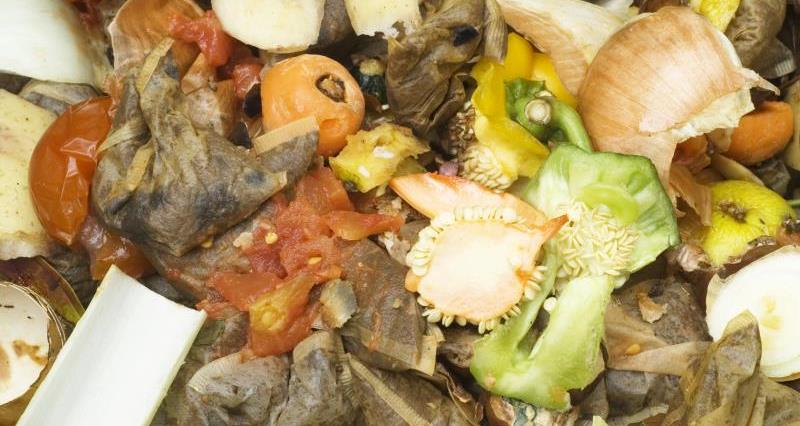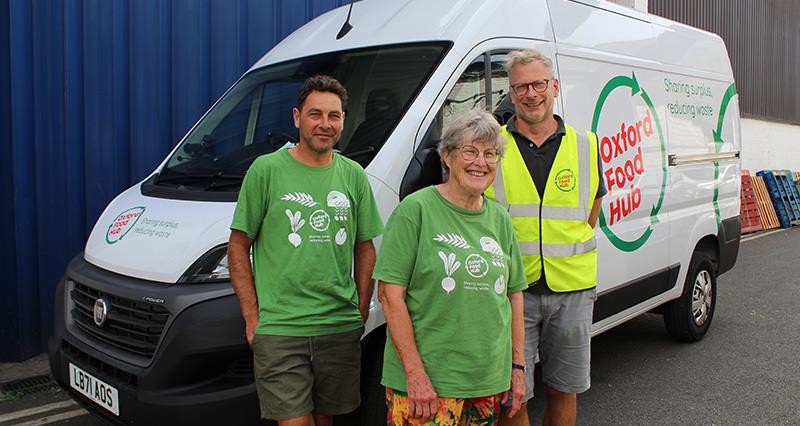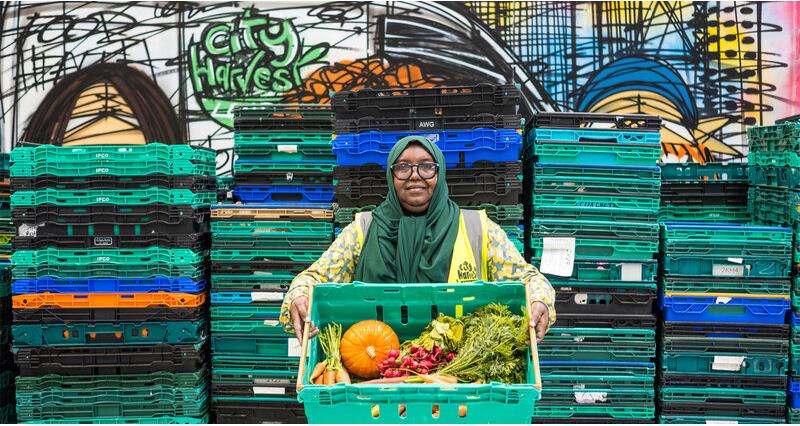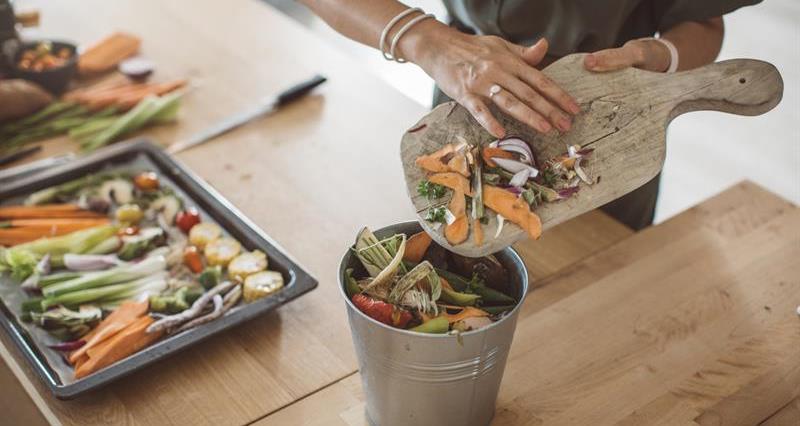Based in Botley, Oxfordshire, the Oxford Food Hub has humble beginnings, with founders Robin Aitken and David Cairns starting out with just one car, transporting surplus food from supermarkets to homeless hostels. Today the Oxford Food Hub boasts two warehouses, six vans and 90 volunteers who collect and deliver food to over 200 charities and community groups across the county, having redistributed more than £1.1 million worth of food in the past year alone.
Working mainly with wholesalers, supermarkets, restaurants and farmers and growers, the charity provides for a broad range of communities, with its support extending not only to food banks but also to warm spaces, homeless shelter, mental health support charities and children’s hospices, allowing them to divert funds to energy costs and other essential services.
“Smaller community groups have seen their energy costs rise in recent months – food is part of what they do so if we can get free surplus food to them that’s one less cost which means they can cover their energy bills and continue to carry out their activities,” explains CEO Emily Smith. “We’ll support any group, whether they’re giving food directly to families or using the food to cook a meal in a warm space for isolated groups of people - we’re seeing more and more food banks and warm spaces approaching us for help.”
Get involved
If you have surplus to share, then you can contact the Oxford food hub via email at: [email protected], or call 01865 236420.
More details can be found at oxfordfoodhub.org.
Having recently celebrated its fifteenth anniversary, the charity is looking to partner with more farmers and growers in the area as demand for free food continues to soar during the current cost of living crisis.
“One of the benefits of being a local, grassroots, volunteer-led organisation is that we can be quite flexible,” Emily explains. “We are looking to speak to more farmers and growers about what their challenges are and how we can work together to make it as easy as possible for them. That’s key as farmers and growers have a huge number of challenges themselves to manage – I’m very conscious of that. We don’t want to create extra work for them.”
Starting simple
The charity is entirely funded through donations and small grants, meaning it can offer a cost neutral solution to suppliers looking to redistribute food surplus.
NFU members and third-generation growers Rectory Farm, run by husband and wife team Richard and Carla Stanley and their daughter Imogen, are long-serving suppliers of the Hub, having first got involved during 2020 when they donated to the Oxford Christmas lunch - a sit-down meal on Christmas Day which serves around 500 people and is open to anyone who wants to come.
“If you can supply something even once a week – it does make a difference."
NFU member and grower, Imogen Stanley
Since then they’ve delivered a regular supply of potatoes and pumpkins to the hub, as well as soft fruit from the farm’s ‘pick your own’ patch.
“We have an easy working relationship with the Hub where we just fire a text message across and say we’ve got some strawberries, for example, and they’ll send a van out and collect them – no matter if it’s freezing cold or pouring with rain,” says Imogen. “My advice would be to keep it simple to start with – think of the biggest vegetable you grow that’s easy to store and process. If you can supply something even once a week – it does make a difference.”
Thanks to its speedy response rate, volunteers can take any type of food, including perishables and produce close to its best before date. “Because of the level of demand, the food could well be gone that day or if not first thing in the morning - so the turnaround is quite quick,” Emily explains.
“We have our regular deliveries and always make sure we have a base driver on site to deal with those ad hoc collections. We once had a pub call and say their freezer had broken and everything was about to defrost so we said: ‘We’re on the way with our temperature checkers ready!’ We checked the food was safe, collected it and it had all been redistributed by the end of the day.”
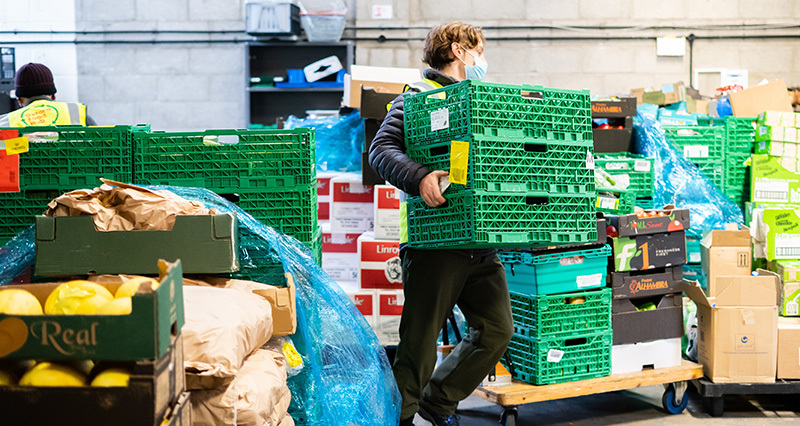
Cost of living continues to bite
“Food surplus is reducing because of lots of really good reasons, but all of those improvements have an impact on our business model which is based on food surplus and redistribution,” says Emily. “It’s a balancing act between food surplus and reducing waste and also serving the communities that have come to rely on that – they’re still struggling with the cost of living.”
WRAP’s 2022 annual survey found that total redistributed food has increased by around 27% compared to 2021, equating to 70 million more meals redistributed in that year.
“There’s a lot of deprivation particularly in Oxford city and Banbury and also South Oxfordshire. In the past few years we’ve seen a lot of people struggling to make ends meet that you wouldn’t traditionally expect to be in that situation,” says Emily.
“The challenge used to be managing the food coming in, but since last December the situation has changed, and now demand is outstripping supply we’re looking at what more we can be doing.”
As well as her role within the Oxford Food Hub, Emily sits on the Good Food Oxfordshire Steering Committee, a network of organisations working towards a fairer, healthier and more sustainable food system for Oxfordshire.
Good Food Oxfordshire worked in partnership with district and city councils, as well as community groups and farmers to create its ‘Food Strategy for Oxfordshire’ which includes food action plans for each district in the county and commitments to growing the local food economy.
“We’re still at an early stage of reaching out to more farmers and networking through Good Food Oxfordshire,” Emily adds. “The biggest challenge is identifying the surplus and making that initial contact and seeing what we can do from our side in terms of making it easier to share surplus.”
More from NFUonline:
